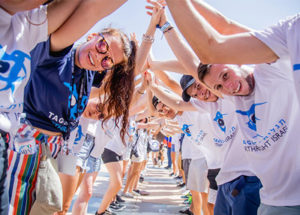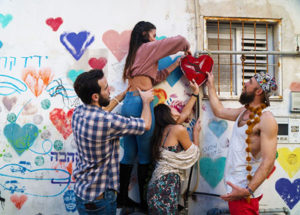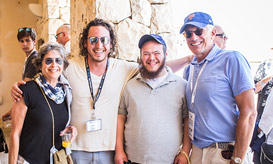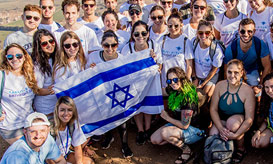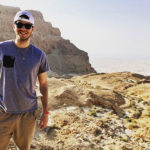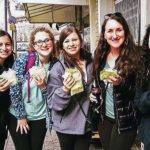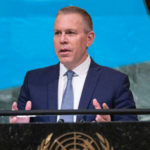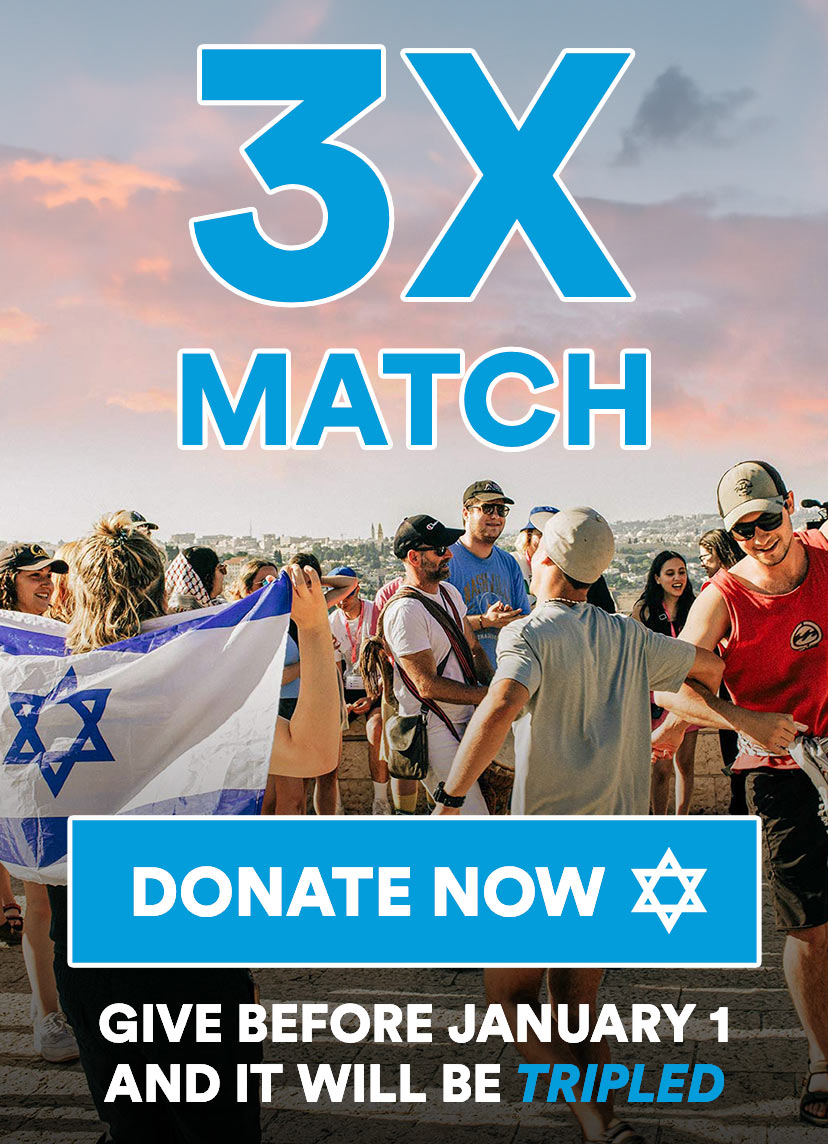You may have heard us say this before: Birthright Israel is strengthening the Jewish future. But…
When people talk about their Birthright Israel success stories, you’ll usually hear about someone who had no previous connection to Israel returning with a newfound love for their homeland. My Birthright Israel experience, however, instilled in me a sense of responsibility to stand up for its existence. In 2019, I filed a lawsuit against NYU for failing to protect its Jewish community from discrimination and harassment. My suit led to one of the first settlements openly addressing antisemitism as a form of discrimination under Title VI of the Civil Rights Act.
I was born and raised in the modern orthodox Syrian Jewish communities of Mexico City, Mexico, and Deal, New Jersey. Israel was always a part of my life, from family trips for Bar Mitzvahs to tzedakah boxes by our Shabbat candles to singing Hatikvah each morning in my Jewish day school. Israel was in no way taboo.
When I got to college, I knew Judaism would always be part of who I was, but I didn’t want it to define me in college. I wanted to change the world, focus on human rights and politics, branch out, make new friends, and build a career outside of the Jewish world I grew up in. So, instead of dorming in the heavily Jewish dorm with a kosher cafeteria, I opted for a newly renovated dorm a bit further away with randomly assigned roommates. I joined Student Government, hosted a talk show on WNYU Radio, and began my college career looking for a cause to fight for.
A couple of weeks into my Fall semester, I came across a group of Jewish students handing out Israeli flags in the park. I didn’t know any of them personally, but I was Jewish, so I took a flag too. The students began to form a circle, and one student who I recognized from around campus, came to the center of the circle. He began to speak about victims of terror who lost their lives in a bus bombing earlier that week. One of the victims, Ezra Schwartz, was only 18 — my age at the time — while volunteering to deliver food to Israeli soldiers.
I stood there in that circle with complete strangers, singing Hatikva, holding my flag, and realized I do not need to look for a cause to fight for if I already have my own. I joined Realize Israel, the pro-Israel club at NYU and began to immerse myself in NYU’s Jewish community.
About a year later, the student that had spoken at the event in the park announced he would be leading a Birthright Israel trip through Chabad House Bowery that summer. I saw it as a fun, a free trip with my friends, thinking I had nothing to gain out of it — I was already in tune with my Jewish identity, and I was already a Zionist with a love for the land. I signed up and headed to Israel.
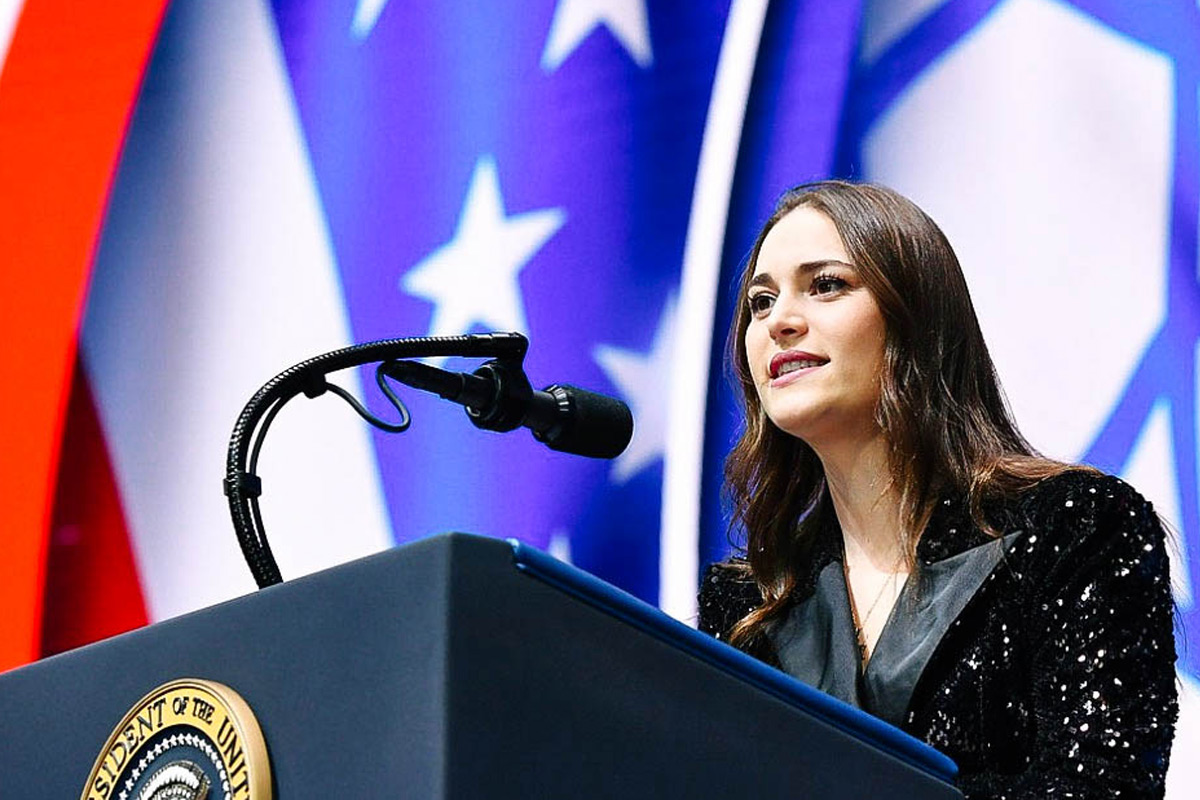
The majority of the students on my trip had never been to Israel before, and a few had not been Bar or Bat Mitzvahed. Over ten days, I watched their eyes fill with wonder as they discovered Israel for the first time, watching Birthright Israel success stories in the making. I saw them float for the first time at the Dead Sea, giggle as camels jerked them back and forth, listen intently at the history of Ir David, and watch as they, for the first time, saw the Kotel. My friends started asking me simple questions that I didn’t have answers for. I had to re-learn basic concepts of Judaism and Israeli history to best explain it to them. I had taken both Israel and my Jewish education for granted. As I watched Jewish souls rekindle their flames, I felt weirdly jealous that I couldn’t have their first-time feeling.
Birthright Israel may not have taken me to a new location, but it gave me a new experience and with it, a new mission and hunger for growth. There is a huge difference between visiting Israel with family as a child and experiencing it as a young adult, with other young adults, interacting with soldiers who, instead of going to college the way we did, dedicated their formative years to serving their country. I felt myself somewhere between the not-yet-connected American college student and the all-in IDF soldier. I knew about Israel and loved the country, but I hadn’t served the way they did.
I returned from Israel with a newfound sense of responsibility, not only understanding that Israel is indeed our ancestral homeland but that I, as a Jew, have the responsibility to stand up for its existence.
Over the next few months, NYU would become one of the most overtly antisemitic campuses in the US.
The Governance Counsel for Marginalized and Minority Students (GCOMMS) released a statement to the student body comparing Zionism to racism and Nazism. I met with the school to let them know this was making the Jewish community uncomfortable, and I was told I was overreacting. Two weeks later, a resolution was presented to NYU Student Government to boycott NYU’s Tel Aviv Campus, a group of over seventy professors signed a boycott pledge against Israeli academics, and 53 student clubs — that’s one of every six clubs at NYU — signed a pledge to boycott Israel and Realize Israel, the student group I was involved in.
As the Jewish representative on student government, I found myself alone in the position to speak up for the community. As anti-Zionist students spewed lies and propaganda, my sense of responsibility heightened.
I kept meeting with the school to tell them the climate was becoming dangerous for Jewish students. We were preparing to host our annual Yom Haatzmaut celebration in Washington Square Park, an annual event where hundreds of students gather at NYU to celebrate Israel and, wrapped in Israeli flags, sing Hatikvah together. That year I knew there would be protests, so again, I met with the school to express concern for student safety, and the school, again, told me I was overreacting.
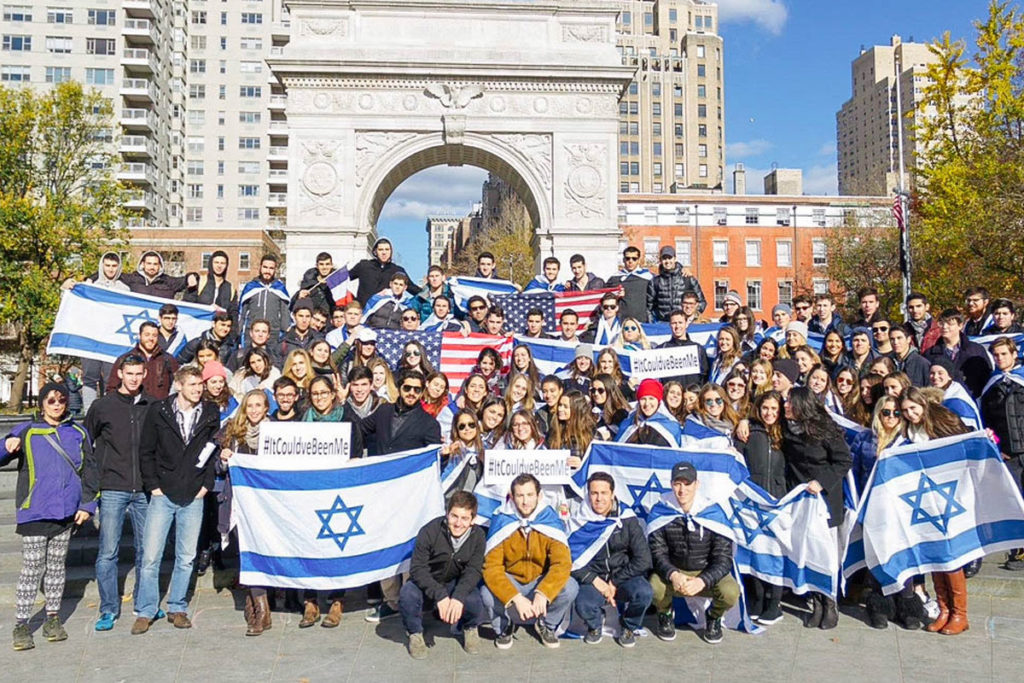
The celebration opened up with an anti-Zionist student making his way to the front of the protest line with an Israeli flag. He held it up, lit it on fire, threw it on the ground, and let it burn. I told the Jewish students, many of whom had gone on Birthright Israel with me, to continue with the celebration and ignore the protests. The music continued, and we gathered to sing Hatikvah holding our flags, the same way we had when I first found Realize Israel my freshman year in the park, and as we sang, another student came to the center of the circle, grabbed a microphone from a Jewish student, and started yelling Free Palestine, waving his arms in the air. The protesters then took our ten-foot Israeli flag, tore it to shreds, and hung it from trees and lamp posts. NYPD made two arrests, charges including reckless endangerment, property theft and damage, and assault.
I met with the school again to tell them a line had been crossed, and instead of protecting the community, the University awarded the anti-Israel hate group the President’s Service Award, the highest honor you can receive as a group on campus.
I tried to meet with the school again. The administrators dodged my calls and ignored my emails requesting meetings. At that point, I took a step back and realized the school didn’t care about making a change. They just wanted me to graduate so they could continue to ignore the problem. I felt that sense of responsibility again. I asked lawyers if I had a case against the school, and they explained that Title VI of the Civil Rights Act only applied to protect discrimination based on race, ethnicity, and nationality, not religion. The law was not on my side. After reading the documents I sent over, the lawyers told me that the case would likely not win, but it would be a foot in the door for Jewish rights in the United States. They asked me if I wanted to move forward, and I said yes. I picked up the phone, called my mom, and I told her I was going to sue NYU under Title VI of the Civil Rights Act for failing to protect the Jewish community from discrimination and harassment. My mom asked me if I was sure, and I told her I couldn’t imagine graduating without filing this grievance.
I spent six months making publicity for my case, and in December 2019, I received a call from the White House. The President at the time had heard about my case and invited me to speak about it at a conference in Miami. I agreed, taking the platform, and three days later, he signed an Executive Order that expanded the definition of Judaism from a religion to an ethno-religion, thereby falling under Title VI. At that point, NYU understood it was a losing battle and drafted a settlement agreement. When I sued NYU, I didn’t ask for damages; the only relief I sought was for antisemitism to be defined and included in NYU’s existing discrimination policies. My settlement set the precedent for Jewish student protections on college campuses and sparked a series of similar lawsuits against other universities.
Historically, Jews have lived in exile as guests in host countries. Being Jewish made you different, and being different made you a target. This led to the wandering Jew mentality, where we are afraid to stand up for ourselves or for each other out of fear of expulsion or, worse, genocide. It took me up until that point to realize that we are no longer the wandering Jews of the past. We are strong, we are united, and we have a homeland. The existence of Israel gives us, as Jewish people, agency — but with agency, to paraphrase the axiom, comes great responsibility, and that responsibility falls on each of us.
Yes, Birthright Israel will connect people to the land who did not previously have a connection — but for those who are already connected, it instills a sense of duty to fight for its protection. I am eternally grateful for my Birthright Israel experience. I can only hope other students can have the same opportunity.

